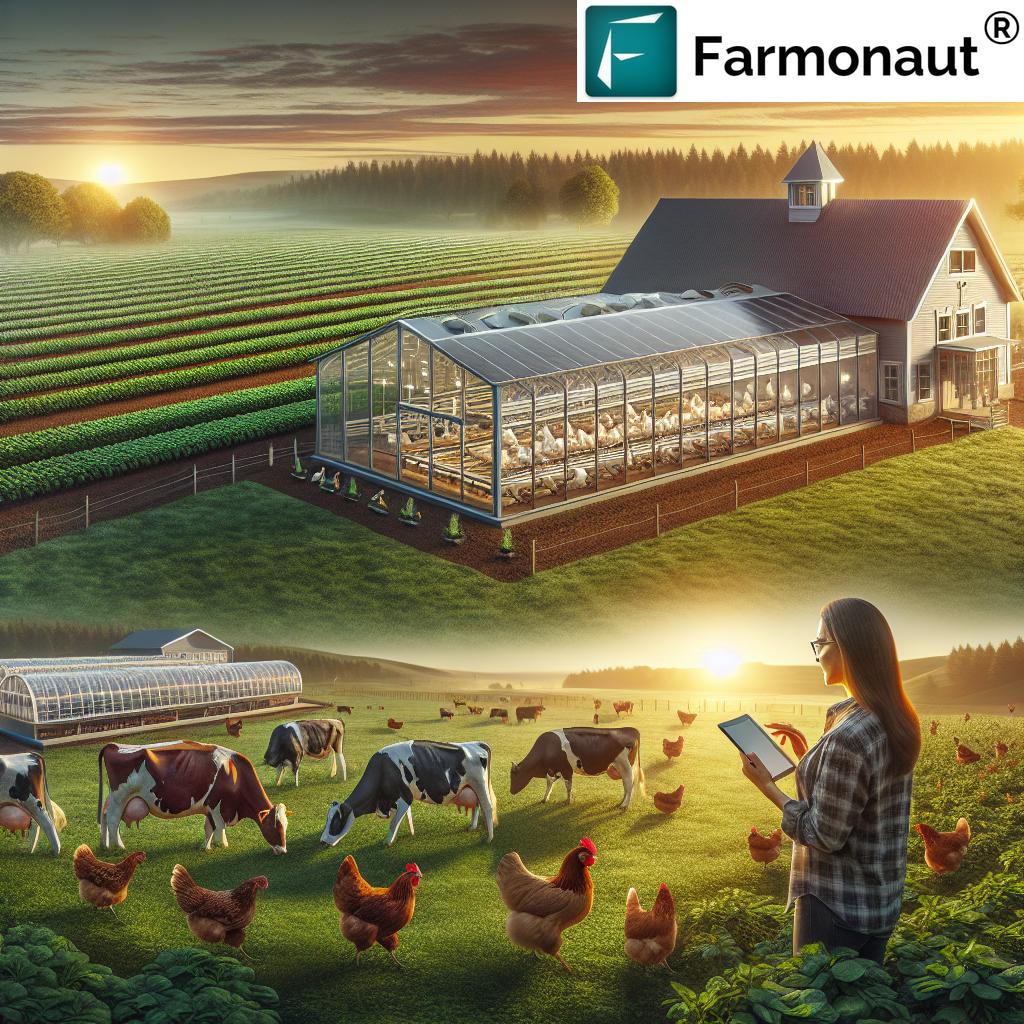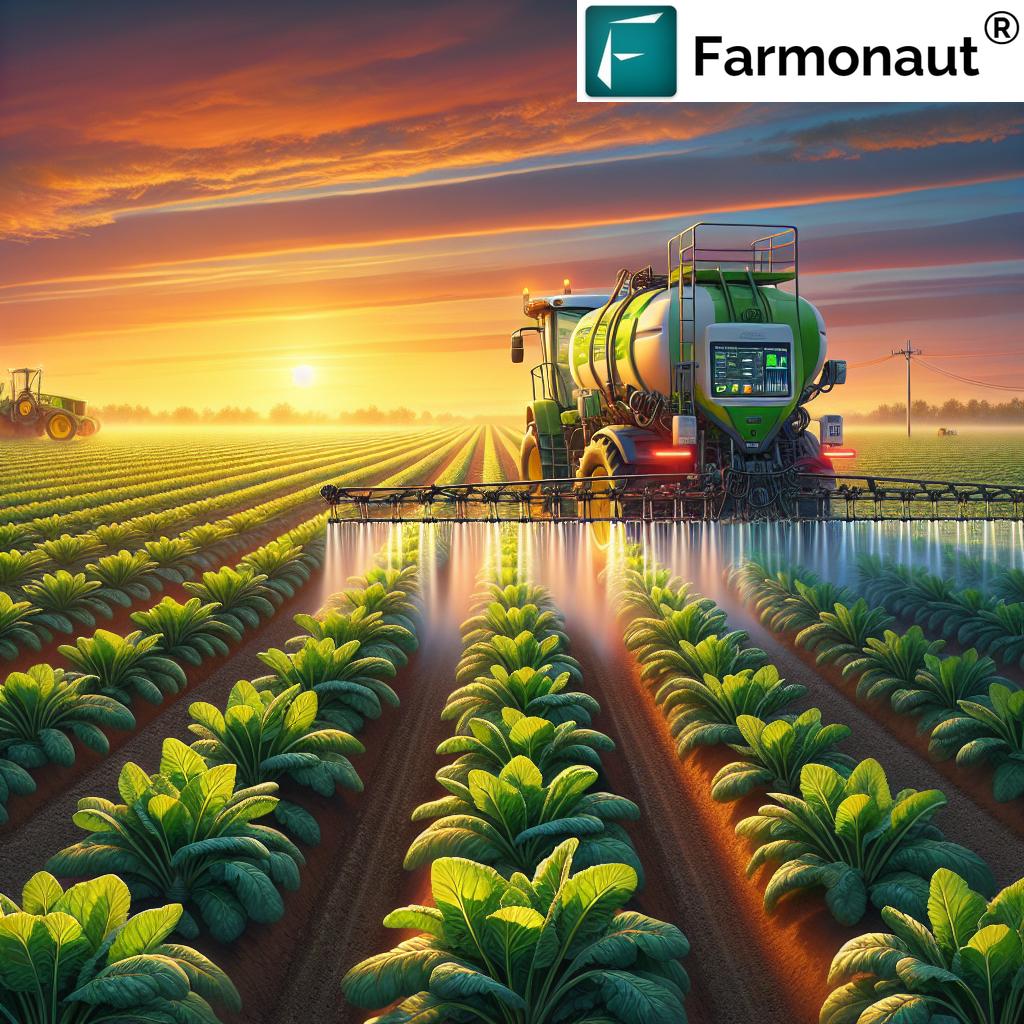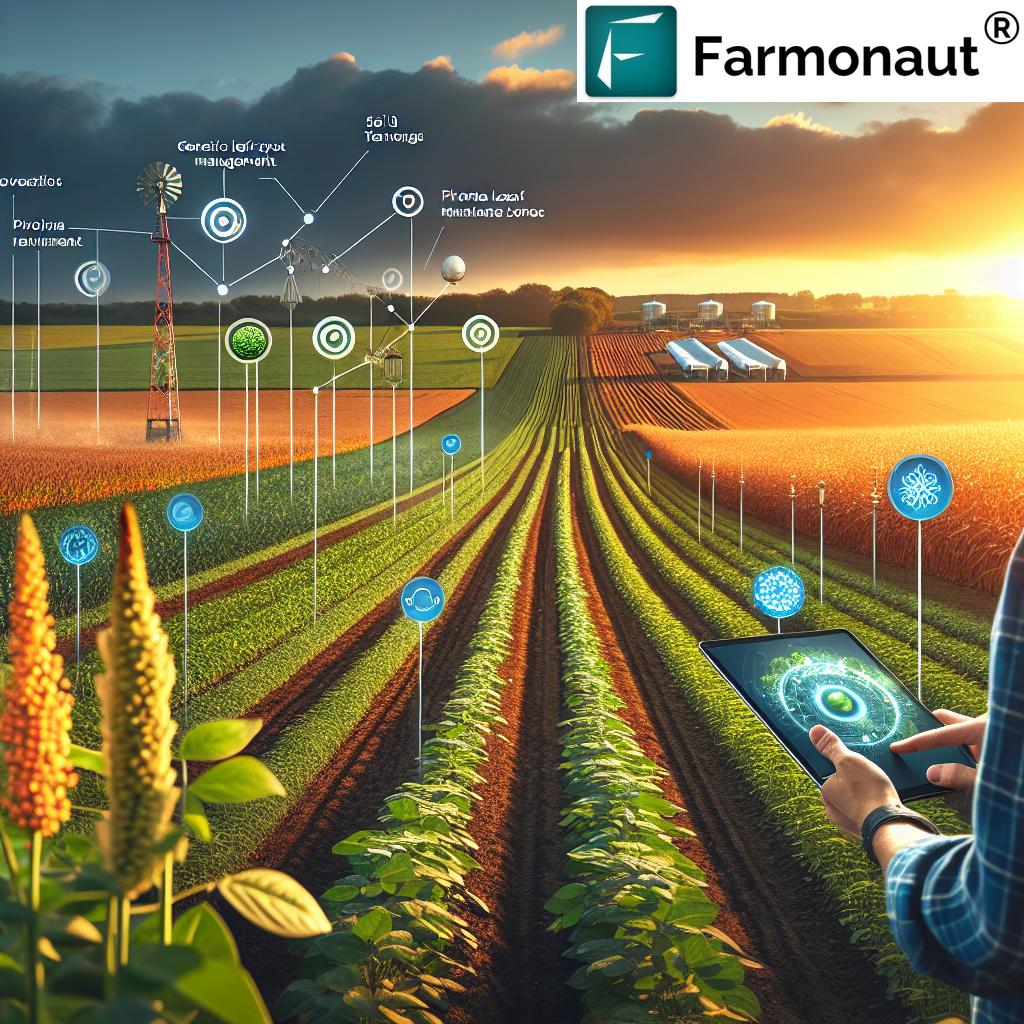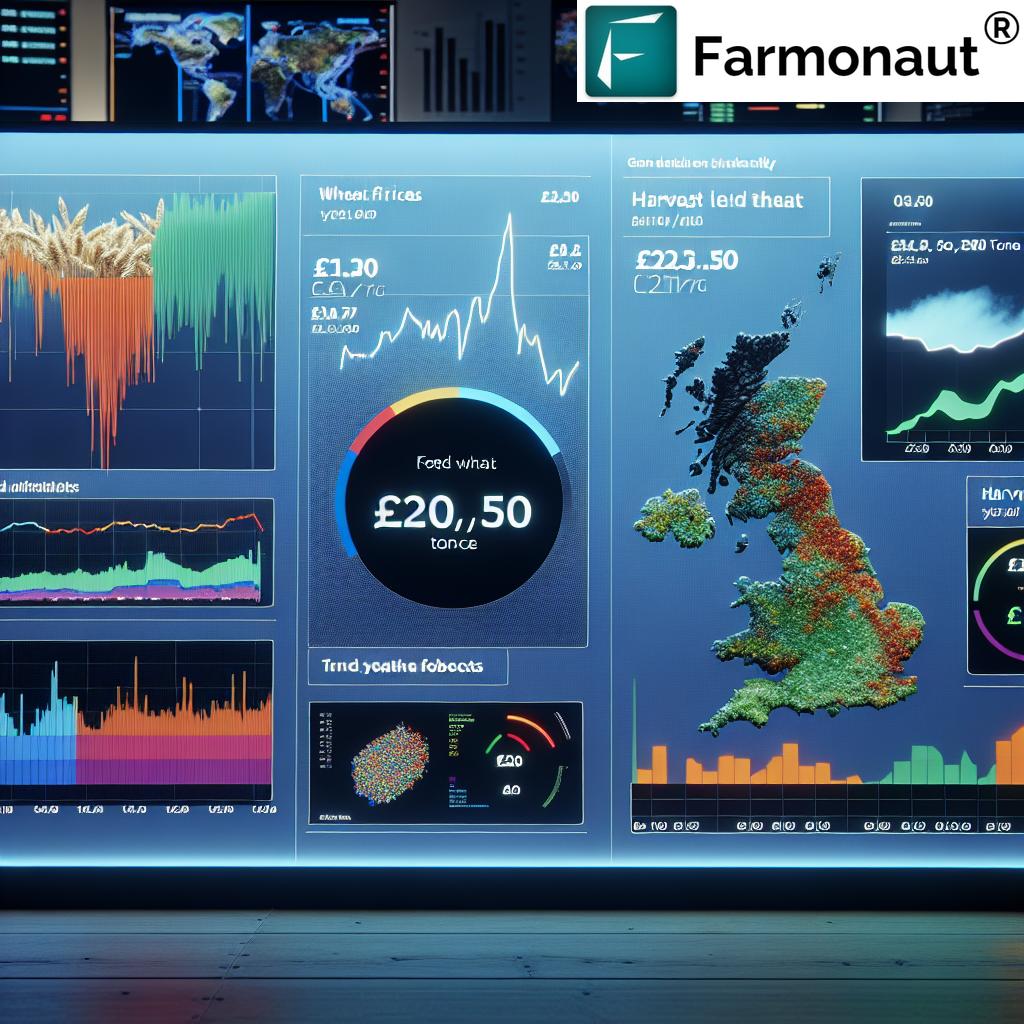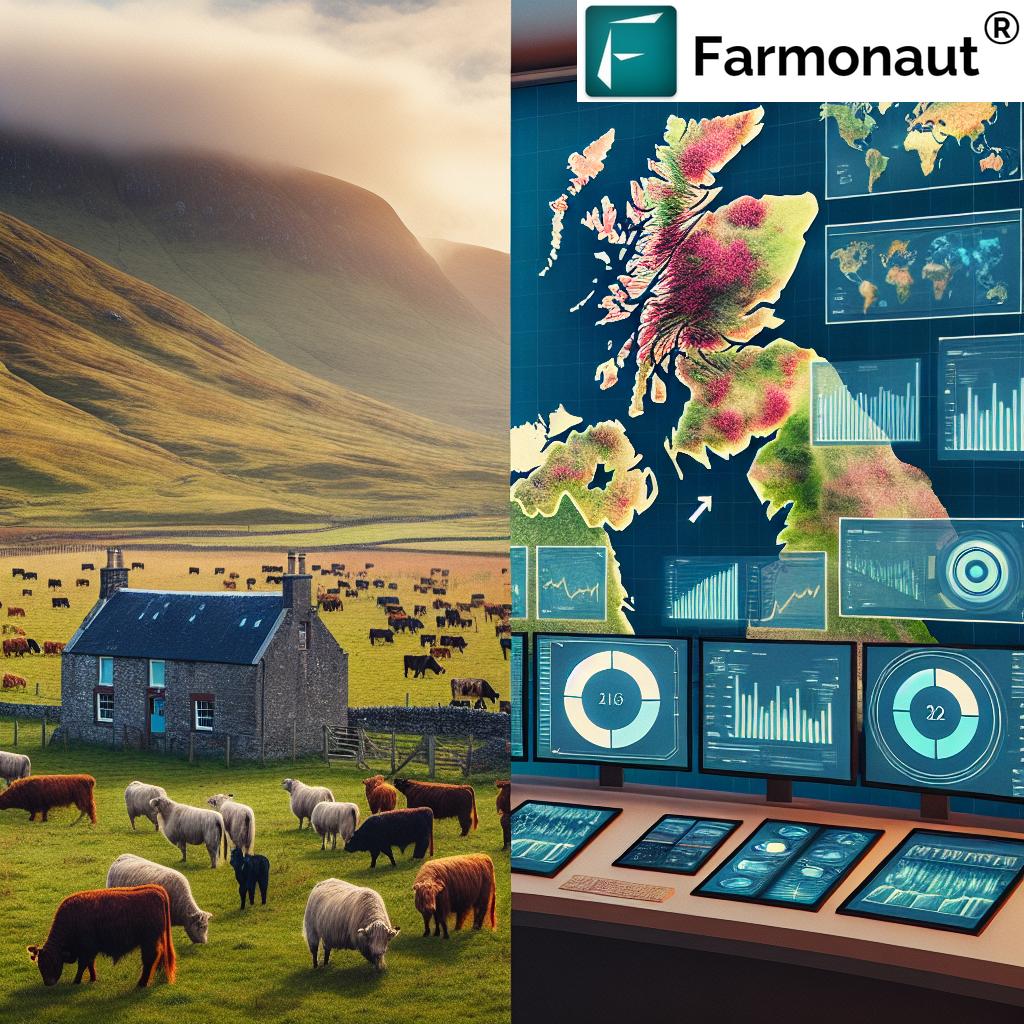UK Agriculture Policy Insights: Navigating Trade, Sustainability, and Water Scarcity Challenges in British Farming
“The UK government’s efforts to address water scarcity in agriculture impact over 70% of British farmers.”
In the ever-evolving landscape of British agriculture, we find ourselves at a crucial juncture where policy, sustainability, and innovation intersect. As representatives of Farmonaut, we are committed to providing valuable insights into the challenges and opportunities facing UK farming today. Our comprehensive analysis delves into the intricacies of agricultural trade regulations, farm business management, and the pressing environmental concerns that shape the future of British agriculture.
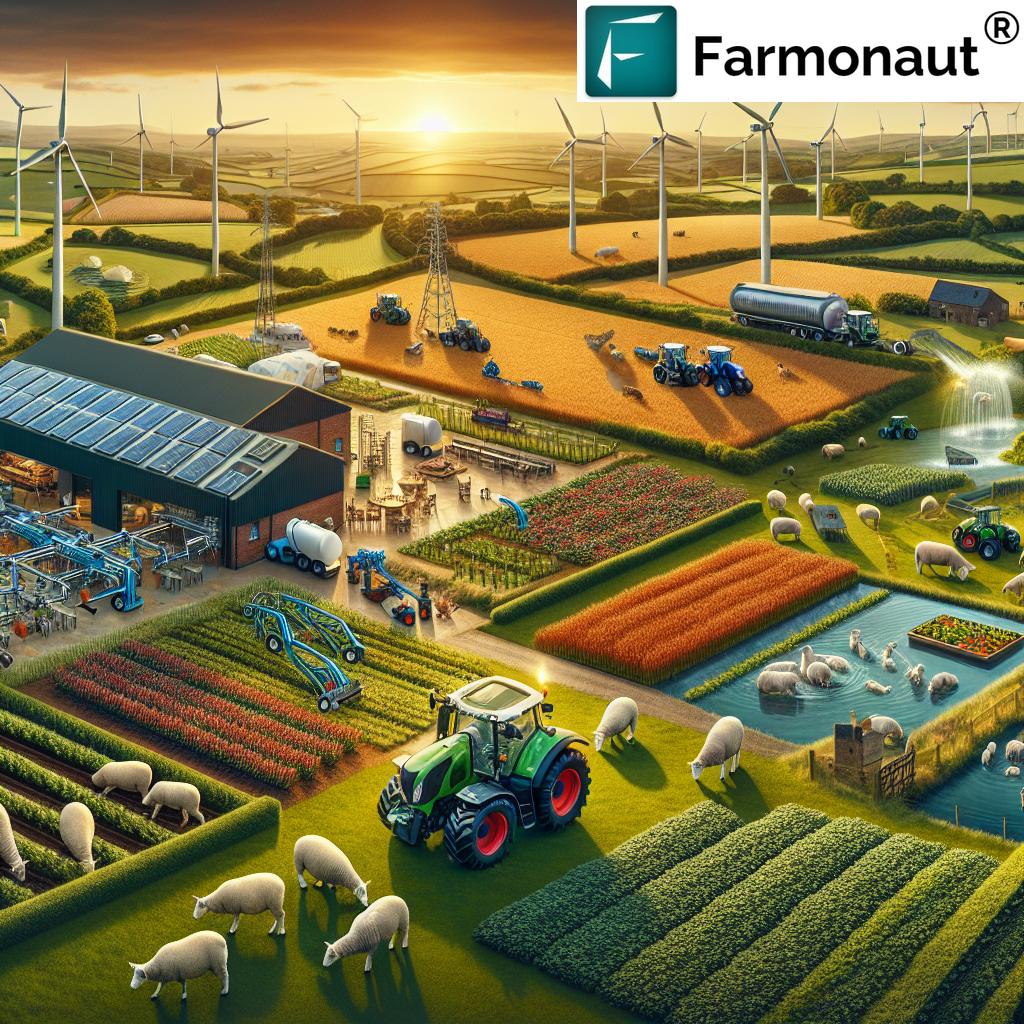
The Evolving Landscape of UK Agriculture Policy
The British farming sector is undergoing significant transformations, driven by a combination of post-Brexit realities, environmental imperatives, and technological advancements. As we navigate these changes, it’s crucial to understand the key elements shaping UK agriculture policy:
- Trade Regulations: The exit from the European Union has necessitated a recalibration of trade relationships, impacting everything from export markets to import standards for agricultural products.
- Sustainability Initiatives: There’s an increased focus on environmentally friendly farming practices, with government schemes incentivizing carbon reduction and biodiversity enhancement.
- Water Management: With climate change exacerbating water scarcity issues, policies are being developed to promote efficient water use in agriculture.
- Livestock Welfare: New regulations are being implemented to ensure higher standards of animal welfare across all farming sectors.
These policy areas are not isolated; they interconnect and influence each other, creating a complex web of regulations and incentives that farmers must navigate.
Trade Dynamics in Post-Brexit Britain
The reshaping of trade relationships following Brexit has been one of the most significant challenges for UK agriculture. We’ve observed several key developments:
- New Trade Agreements: The UK has been actively negotiating trade deals with countries around the world, each with potential impacts on different agricultural sectors.
- Export Opportunities: Some British farmers are finding new markets for their products, particularly in high-value sectors like organic produce and specialty meats.
- Import Competition: There are concerns about increased competition from imports, particularly in sectors where production standards may differ from UK norms.
- Regulatory Alignment: Balancing trade opportunities with maintaining high food and farming standards remains a key policy challenge.
For farmers looking to adapt to these new trade dynamics, staying informed and agile is crucial. Utilizing technology to enhance productivity and quality can be a significant advantage in this competitive landscape.
Sustainable Farming Practices: A National Priority
Sustainability has moved from being a buzzword to a central pillar of UK agriculture policy. The government’s commitment to net-zero emissions by 2050 has significant implications for farming practices:
- Environmental Land Management Schemes (ELMS): These schemes are replacing EU-based subsidies, rewarding farmers for environmental stewardship.
- Carbon Sequestration: Initiatives encouraging practices like agroforestry and improved soil management to increase carbon capture on farmland.
- Renewable Energy: Policies supporting the adoption of renewable energy sources on farms, from solar panels to biogas digesters.
- Precision Agriculture: Encouragement of technologies that optimize resource use, reducing waste and environmental impact.
At Farmonaut, we recognize the importance of these sustainability initiatives. Our satellite-based crop health monitoring system helps farmers make data-driven decisions that not only improve yields but also contribute to more sustainable farming practices.
Addressing Water Scarcity in British Agriculture
Water scarcity is becoming an increasingly pressing issue for UK farmers, particularly in the face of climate change. The government and agricultural sector are working together to develop strategies for more efficient water use:
- Irrigation Efficiency: Policies encouraging the adoption of precision irrigation systems to reduce water waste.
- Water Storage Solutions: Support for the construction of on-farm reservoirs and other water storage facilities.
- Crop Selection: Guidance on selecting drought-resistant crop varieties suitable for changing climate conditions.
- Water Rights Trading: Exploration of schemes to allow more flexible allocation of water resources among farmers.
Our Farmonaut platform includes soil moisture monitoring capabilities, helping farmers optimize their water usage and adapt to changing water availability conditions.
Explore Farmonaut’s API for advanced agricultural data
Livestock Welfare Initiatives
Animal welfare is a key concern for both consumers and policymakers in the UK. Recent policy developments in this area include:
- Enhanced Welfare Standards: New regulations setting higher standards for animal housing, transportation, and care.
- Disease Control: Continued efforts to manage and eradicate diseases like bovine TB, with implications for cattle farmers.
- Antibiotic Use: Policies aimed at reducing the use of antibiotics in livestock farming to combat antimicrobial resistance.
- Labeling Schemes: Initiatives to provide consumers with more information about animal welfare standards in food production.
These initiatives not only improve animal welfare but also contribute to the overall sustainability and reputation of British farming.
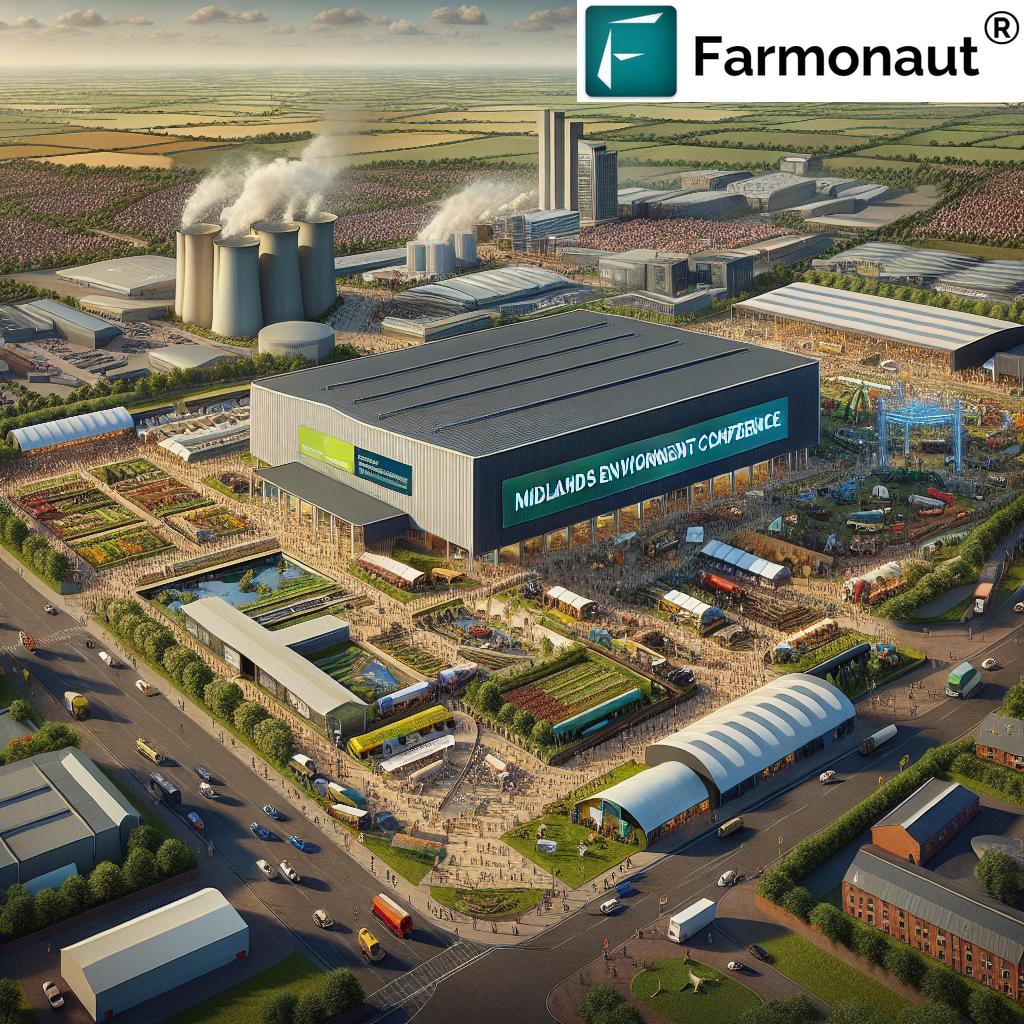
Farm Business Management in a Changing Landscape
Effective farm business management is more critical than ever in the face of policy changes and environmental challenges. Key areas of focus include:
- Diversification: Many farms are exploring additional income streams, from agritourism to renewable energy production.
- Technology Adoption: Embracing digital tools for farm management, from accounting software to precision agriculture technologies.
- Skills Development: Ongoing training and education to keep up with new farming techniques and regulatory requirements.
- Succession Planning: Ensuring smooth transitions for family farms to the next generation of farmers.
Farmonaut’s platform can play a crucial role in modern farm business management, providing data-driven insights that help farmers make informed decisions about crop management and resource allocation.
Access Farmonaut’s API Developer Docs for integration guidance
“The Midlands Environment Conference attracts over 500 agricultural professionals annually to discuss pressing farming challenges.”
The Role of Technology in UK Agriculture
Technology is playing an increasingly vital role in addressing the challenges facing UK agriculture. From precision farming to AI-driven advisory systems, technological innovations are helping farmers improve productivity while reducing environmental impact:
- Satellite Monitoring: Use of satellite imagery for crop health assessment and yield prediction.
- IoT Sensors: Deployment of connected devices to monitor soil conditions, weather, and livestock health.
- AI and Machine Learning: Advanced algorithms providing personalized recommendations for crop management.
- Robotics: Development of autonomous vehicles and robotic systems for various farming tasks.
At Farmonaut, we’re at the forefront of this technological revolution in agriculture. Our platform combines satellite imagery, AI, and machine learning to provide farmers with actionable insights for improved farm management.
Events and Community Engagement in Agriculture
The agricultural community in the UK remains vibrant and engaged, with numerous events bringing together farmers, policymakers, and industry experts. Some notable events include:
- Midlands Environment Conference: An annual gathering focusing on environmental challenges in agriculture.
- Young Farmers’ Events: Initiatives designed to engage the next generation of agricultural professionals.
- NFU Conference: A key event for discussing national farming policies and industry trends.
- Agricultural Technology Showcases: Events highlighting the latest innovations in farming technology.
These events provide valuable opportunities for networking, knowledge sharing, and staying updated on the latest developments in UK agriculture.
UK Agriculture Policy Timeline and Impact Assessment
| Year | Policy Name | Primary Focus | Intended Benefits | Observed Impacts |
|---|---|---|---|---|
| 2020 | Agriculture Act 2020 | Post-Brexit agricultural framework | Tailored support for UK farmers, environmental protection | Shift towards environmental land management, uncertainty in subsidy distribution |
| 2021 | Sustainable Farming Incentive | Environmental stewardship | Reward farmers for sustainable practices | Increased adoption of soil health practices, challenges in implementation |
| 2022 | UK-Australia Free Trade Agreement | Trade | Expanded market access, reduced tariffs | Concerns over competition in livestock sector, new export opportunities |
| 2023 | Water Resources Management Plan | Water scarcity | Improve water use efficiency in agriculture | Increased investment in irrigation technology, ongoing challenges in dry regions |
The Future of British Agriculture
As we look to the future of British agriculture, several key trends and challenges emerge:
- Climate Adaptation: Developing resilient farming systems capable of withstanding extreme weather events.
- Food Security: Balancing domestic production with international trade to ensure a stable food supply.
- Technological Integration: Further adoption of advanced technologies to improve efficiency and sustainability.
- Workforce Development: Addressing labor shortages and skills gaps in the agricultural sector.
- Consumer Expectations: Meeting growing demands for transparency, sustainability, and ethical production.
Farmonaut is committed to supporting British farmers in navigating these challenges, providing cutting-edge tools and insights to enhance farm productivity and sustainability.
Conclusion
The UK agricultural sector stands at a pivotal moment, facing challenges that demand innovative solutions and adaptive policies. From navigating new trade landscapes to addressing environmental concerns and embracing technological advancements, British farmers are at the forefront of a rapidly evolving industry.
At Farmonaut, we’re proud to be part of this journey, offering tools and insights that help farmers make data-driven decisions, improve productivity, and contribute to a more sustainable future for British agriculture. By staying informed, embracing innovation, and working together, we believe the UK farming community can thrive in the face of these challenges, ensuring a robust and sustainable agricultural sector for generations to come.
FAQ Section
Q: How are UK agriculture policies adapting to climate change?
A: UK agriculture policies are increasingly focusing on climate adaptation through measures such as promoting water-efficient farming practices, encouraging the adoption of resilient crop varieties, and incentivizing carbon sequestration in farmland.
Q: What support is available for young farmers in the UK?
A: Young farmers in the UK can access various support mechanisms, including specialized training programs, grants for new entrants, and mentorship schemes offered by organizations like the National Farmers Union (NFU).
Q: How is technology being integrated into UK farming practices?
A: Technology integration in UK farming includes the use of precision agriculture tools, satellite-based crop monitoring systems like Farmonaut, AI-driven advisory services, and IoT sensors for resource management.
Q: What are the main challenges facing livestock farmers in the UK?
A: Key challenges for UK livestock farmers include adapting to new animal welfare standards, managing disease risks like bovine TB, reducing antibiotic use, and competing with international imports in the post-Brexit market.
Q: How is the UK addressing water scarcity in agriculture?
A: The UK is addressing water scarcity through policies that promote efficient irrigation systems, support the construction of on-farm water storage facilities, and encourage the cultivation of drought-resistant crops.







